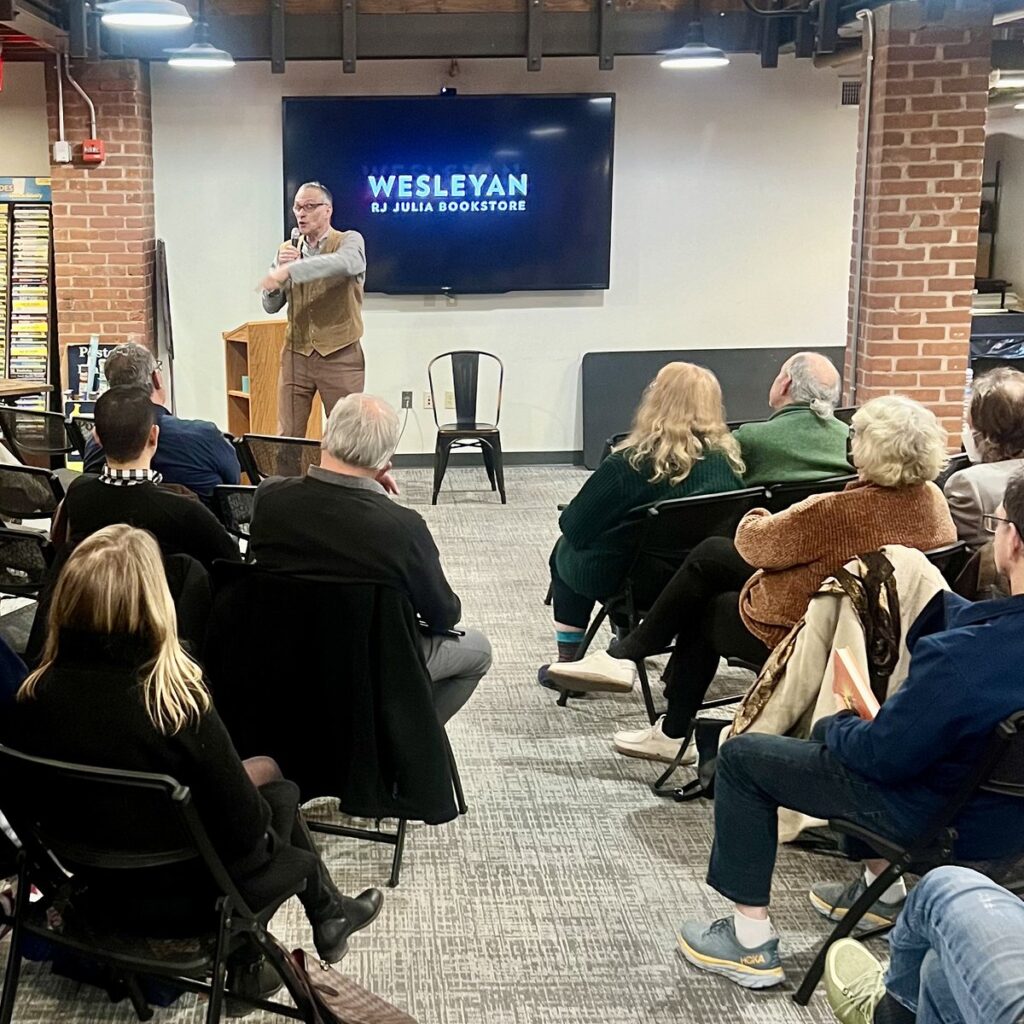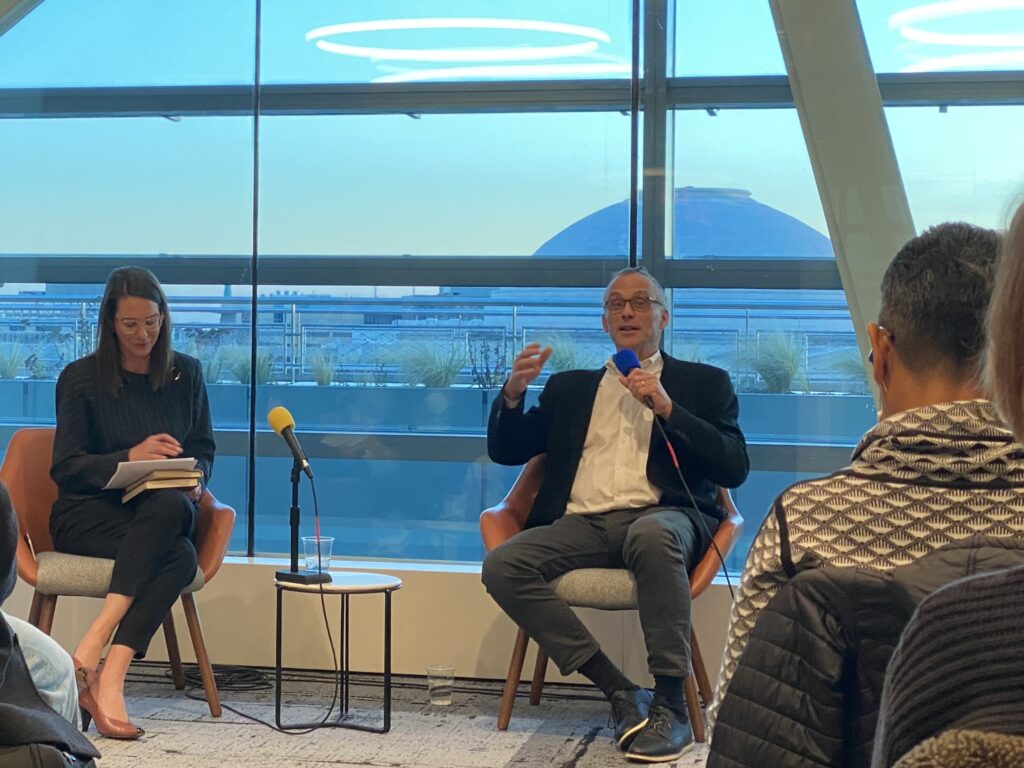In the last week, I’ve talked about being a student with audiences at Brown University, here at Wesleyan’s RJ Julia, and at John Hopkins University’s new public humanities program in Washington, DC. At Brown, our subject was affirmative action, and I was joined by an economist, the Dean of Admissions, and a political theorist. All of us were concerned about the ways in which highly selective schools in the US are much more likely to reproduce inequality than they are to open doors of social mobility. We discussed how we can address our country’s history of racial injustice in the new legal context established last summer by the Supreme Court. It was a good discussion, but there was too much agreement, for my taste, among the panelists about the error of the court. I missed the opportunity to engage with voices critical of affirmative action.
At RJ Julia in Middletown, I was talking about my book, The Student: A Short History. It was fun to summarize the main themes of the book and then to focus on how, in the modern period, the idea of the student gets wed to the desire to “practice freedom.” That’s a phrase I use a lot in the book, whether I’m talking about Kant on thinking for oneself, about Du Bois on education as empowerment, or about Jane Addams on the crucial links of learning and social sympathy. There were thoughtful questions from the audience about some of my key concepts and also how they are playing out these days in academia.
I write this returning from Washington, DC, where I had a wonderful public conversation with some humanities professors from Johns Hopkins about liberal education, free speech, difficult conversations and how to be a student today. There was an impressive turnout from Wesleyan folks in the area—and some pointed questions.
Are we really living up to our promises of open inquiry and intellectual humility? Not everyone thinks so, and that’s one of the reasons why being a student, like being a teacher, means always attempting to do better. And that’s only possible through attentive listening, trust building, and openness.




